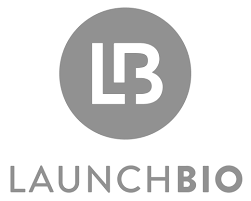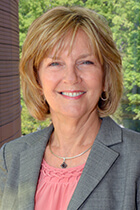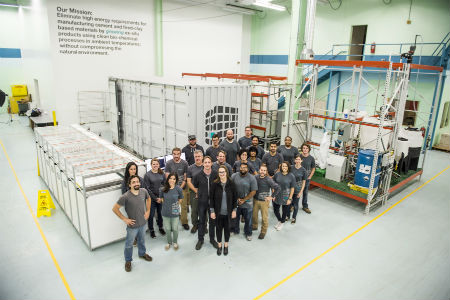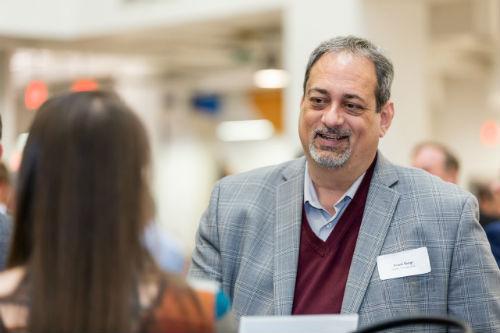
Entrepreneurs Encourage Peers to Use NCBiotech Resources

Innovation, by definition, requires thinking in new and different ways – outside the preconceived notions and silos of conventional approaches.
Meet three North Carolina life science innovators who are improving human health, our environment and achieving critical milestones with the support of the North Carolina Biotechnology Center.
As they explained during the “Think Outside” panel discussion at LaunchBio’s Larger than Life Science event in March, they strongly recommend others seek out the many resources at the Biotech Center, such as advice, introductions to professional service providers and potential investors, temporary office space, educational programs and its all-important loan programs for many stages of development.

Vivian Doelling, Ph.D., NCBiotech’s vice president of emerging company development, moderated the panel. It included Joseph Nixon, senior vice president of business development for Locus Biosciences, which is addressing antibiotic resistance with CRISPR-Cas3 technology; Ginger Dosier, founder and CEO of bioMASON, which has a platform technology that uses harmless bacteria to grow cement for use as bricks or other building materials; and Frank Sorgi, Ph.D., president and CEO of Flag Therapeutics, which is developing therapies for aggressive cancers, such as glioblastoma (brain) and pancreatic, which have extremely poor prognoses and very few treatment options.
“In the last 30 years, NCBiotech has provided $38 million in loan funding to 230 North Carolina life science companies, resulting in a return on investment of $104 for every $1 invested,” said Doelling in her opening statement. This means for every $1 loaned to them by NCBiotech, companies have raised $104 in follow-on funding from other sources, including venture capital, angel investments, grants, stock offerings and debt financings.
Panelists then described the technologies in their pipelines, their business models, funding status, levels of employment, near-term growth plans, interesting stories of their collaborations, how they leveraged NCBiotech resources and challenges and successes they’ve had in raising capital or reaching technological and company milestones.
Locus Biosciences is hoping to revolutionize medical science through its gene-editing CRISPR-Phage (crPhage) platforms against microbiome-related disease. Its lead program targeting Escherichia coli (E. coli) will enter a Phase 1b clinical trial in the first half of 2019, in patients colonized with E. coli in their urinary tracts. Early studies have shown it to selectively remove unwanted bacteria, while leaving many good bacteria intact. It also has crPhage development programs targeting Clostridium difficile (C. diff.), ESKAPE and respiratory pathogens. ESKAPE is an acronym for the following pathogens: Enterococcus faecium, Staphylococcus aureus, Klebsiella pneumoniae, Acinetobacter baumannii, Pseudomonas aeruginosa and Enterobacter species, which are the leading cause of hospital-acquired infections worldwide. Most of them are multidrug resistant. Additional crPhage™ programs are aimed at undisclosed bacterial targets relevant for inflammatory bowel disease (IBD) and other disorders caused by dysbiosis (derangement or imbalance) of the microbiome in gastrointestinal, immunology, oncology and central nervous system therapy areas.
The company began in 2015 with licensed technologies from North Carolina State University and initial funding from NCBiotech in three investments over 2015, 2016 and 2017, explained Nixon. The company raised equity capital in 2016 and 2017 and earlier this year announced a strategic collaboration with Johnson & Johnson to commercialize its first two products. It currently has 32 employees and expects to grow to 55 or 60 by the end of 2019.
“We are very appreciative of the support we’ve gotten from the [Biotech] Center. We’ve used pretty much every possible program and highly recommend this to everyone else. It’s just a great resource,” said Nixon, who was Doelling’s predecessor as a Center employee.
bioMASON wants to revolutionize the building industry with a platform-based technology that makes biologically based pre-cast and masonry building materials in a process much more environmentally friendly than that used to manufacture traditional bricks and cement.
“Concrete and Portland cement making is responsible for 8 percent of CO2 emissions,” explained Dosier. The reason is due to the high energy consumption required for a process that requires baking in a kiln. bioMASON’s process, on the other hand, uses microorganisms to create calcium carbonate that stitch together grains of aggregate or sand in a process at ambient temperatures. Thus, it consumes far less energy and, with it, emits far less CO2 into the atmosphere.
Dosier said she started the business in 2012 in her second bedroom while living in the United Arab Emirates. When she moved back to North Carolina, she used an office suite at NCBiotech, which helped the company to meet with investors. bioMASON also received a $50,000 company inception loan and has been awarded two Strategic Growth Loans (SGLs), for $250,000 and $500,000, respectively. SGLs help North Carolina life science companies reach specific and meaningful milestones that will enable them to obtain further funding from investors and/or to commercialize their products.

Along the way, the company won $670,000 in a major international competition, the Postcode Lottery Green Challenge in The Netherlands, with a panel of judges led by Sir Richard Branson. It subsequently secured venture capital and is “in a funding round right now to grow this platform on a global level,” said Dosier.
One of the pivotal moments, she said, was accepting a call from the world’s most prestigious architect in terms of sustainability, who wanted to place an order for her bricks. There were only three of them in the company and no production plant at the time. Nevertheless, she responded “yes,” acquired additional funding, built a pilot plant and hand-delivered the product as ordered.
Today, bioMASON has 31 employees, a production plant in Research Triangle Park that it sold to a partner, and is working on additional plants, said Dosier. The company also works with the Department of Defense. A current project involves developing an underwater cement that self-heals. Another project is with the U.S. Air Force. By end of 2019, Dosier said, she hopes to double the size of the company.
Flag Therapeutics, headquartered in Raleigh, focuses on development of therapies based on two investigational product platforms: Anti-angiogenic & Anti-tubulin (AA/AT) and Purine Synthesis Inhibitor (PSI). They comprise thousands of investigational water-soluble small-molecule compounds designed to target and destroy cancer cells through well-established mechanisms of action. Preclinical studies suggest that these investigational compounds hold the potential to treat multiple cancer types with greater efficacy and tolerability than observed in conventional therapies.
FLAG’s lead candidate, FLAG-003, is a clinical-stage product under investigational use for Glioblastoma, a malignant brain tumor with an extremely poor prognosis. FLAG-003 was granted Orphan Drug Designation in both the United States and the European Union in February 2016.

Founded by Sorgi in 2013 on Flag Day, hence the name, it soon acquired exclusive rights to the technology from Duquesne University, covering both matter composition and compound use. In 2014 the company received a $50,000 company inception loan from NCBiotech. In 2018, with completion of its seed funding round, it met the criteria for award of a matching $500,000 SGL from NCBiotech. Flag’s SGL supports an Investigational New Drug filing with the U.S. Food and Drug Administration and completion of the Phase 1 safety study of FLAG-003.
“Not being from North Carolina, I really wanted to anchor the company here,” explained Sorgi in the story of his startup. “So, the Biotech Center played a big role. I went to the Biotech Center right away and asked, ‘Who do I get for a lawyer?’ ‘Who do I get for an accountant?’ and when I found out about the loan programs, I really wanted to get them, because they would anchor me.”
Later, Sorgi added that his company decided not to build its own lab, but instead to use the resources the Biotech Center could connect him with. Flag has outsourced to many companies in the region, which he says, further helps to anchor the company here. The company won an SBIR grant and is about to close a Series A funding round.
“Without the Biotech Center, we wouldn’t have gotten the runway far enough to overcome the fact that we are dealing with difficult-to-treat cancers and that everyone was so interested in immuno-oncology at the time. So, it played a big role and we are very thankful for that.” said Sorgi.
